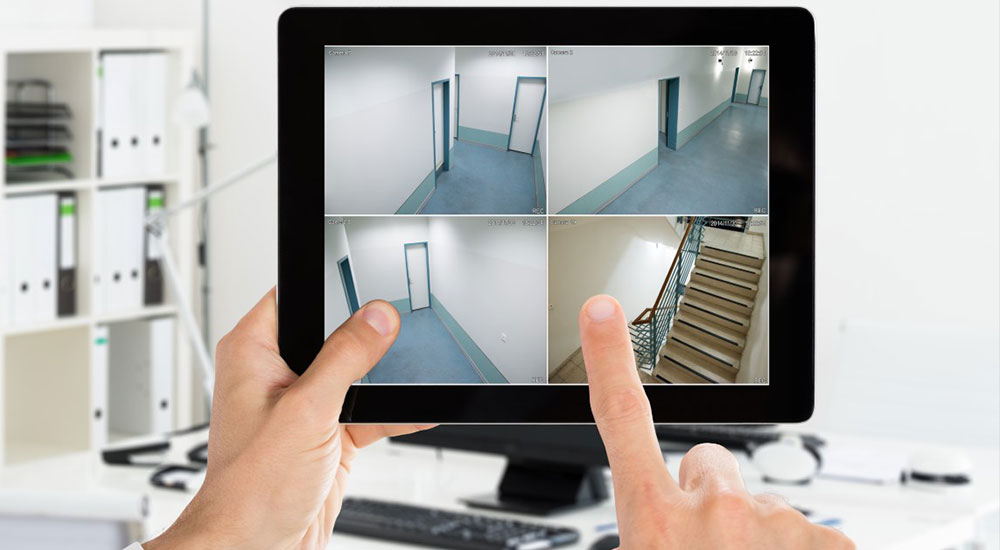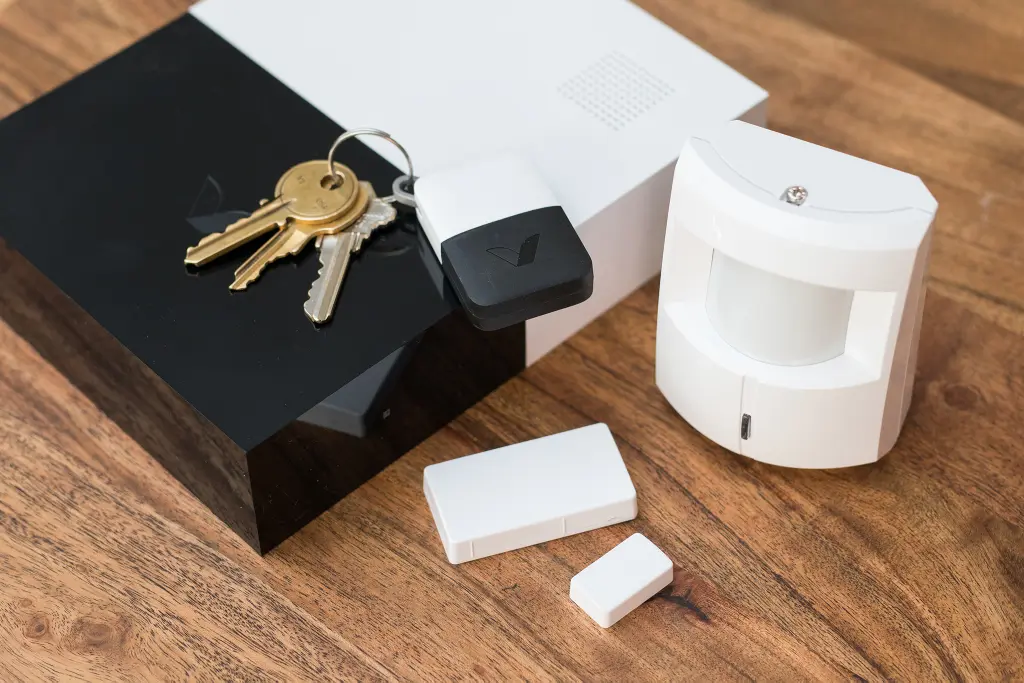Understanding the Importance of Home Security Systems
In an increasingly unpredictable world, ensuring the safety of our loved ones and belongings has never been more essential. Home security systems serve as the first line of defense against burglary and other threats, allowing homeowners to protect what matters most. Beyond merely deterring intruders, these systems can provide peace of mind to families, knowing that their residence is monitored and safeguarded.
According to research, homes without security systems are significantly more likely to be targeted by burglars than those with them. This statistic underlines the importance of home security installation is a reliable solution. Not only do these systems provide physical protection, but they can also enhance your insurance policy by lowering premiums. This can ultimately save homeowners money in the long run, making a secure home both a wise financial and personal investment.
The Role of Technology in Enhancing Home Security
Modern technology has revolutionized home security systems, incorporating advanced features that aid in detection and monitoring. Innovations such as smart cameras, motion sensors, and mobile alerts empower homeowners to supervise their properties actively. For instance, smart cameras with high-definition views can not only record footage but can also send real-time updates to your smartphone, allowing you to respond promptly to any suspicious activity.
Furthermore, the integration of artificial intelligence into security systems adds another layer of protection. AI can analyze movement patterns and intelligently differentiate between normal activity and potential threats. This capability reduces false alarms and provides a more accurate picture of your home’s security status. Additionally, many modern systems can learn from user behavior, adapting to your routine and providing tailored alerts that enhance overall safety.
Key Features to Look for in a Home Security System
When selecting a home security system, there are several crucial features to consider. A comprehensive setup typically includes components such as:
- 24/7 Monitoring: This service ensures that your home is under constant surveillance, alerting local authorities in case of an emergency.
- Smartphone Integration: Many modern systems allow for remote access and control, enabling you to monitor your property from anywhere.
- Video Surveillance: High-quality cameras can be placed at strategic points around your property, providing valuable footage for both security and evidence.
- Motion Detection: Sensors that trigger alerts when unusual movement is detected can provide early warning signs of potential intrusions.
- Environmental Monitoring: Some systems also monitor for threats such as fire, flooding, or gas leaks, ensuring a comprehensive safety net.
Evaluating these features against your specific needs can help you find the perfect home security solution for your family. Additionally, it’s worth considering the scalability of the system; as your needs evolve, you may want to expand your security measures. Many providers offer modular systems that allow you to add components such as doorbell cameras or additional sensors seamlessly. This flexibility ensures that your home remains protected, no matter how your security requirements change over time. Click here to get about: Back to Base Alarm Monitoring: Why It’s Crucial for Your Business Security
Moreover, user-friendliness is another critical factor when choosing a home security system. A complicated setup can deter homeowners from utilizing their system to its fullest potential. Look for systems that offer intuitive interfaces and easy installation processes. Many companies provide extensive customer support and resources, including tutorials and troubleshooting guides, to help you navigate any challenges that may arise. This support can be invaluable, especially for those who may not be tech-savvy, ensuring that everyone in the household can engage with the system confidently.
Comprehensive Review of Top Home Security Systems in Australia
Australia offers a variety of home security systems, catering to various needs and budgets. Below is a review of some of the leading systems available:

Analysing the Pros and Cons of Each System
1. **Nest Secure**
Pros: Easy installation and integration with other smart devices. Offers a user-friendly mobile app.
Cons: Higher upfront costs compared to other systems.
2. **Ring Alarm**
Pros: Affordable pricing and flexible professional monitoring options. Great for renters.
Cons: Limited smart home functionality compared to higher-end systems.
3. **Swann Security System**
Pros: High-quality cameras with night vision and advanced motion detection.
Cons: Installation can be more complicated than other systems.
This analysis highlights the importance of weighing the strengths and weaknesses of each system before making a decision.
Comparing Prices and Value for Money
Price is a significant factor when choosing a home security system. It is important to not only consider the upfront costs but also long-term expenses such as monitoring fees and equipment maintenance. Systems typically range in price from around $199 for DIY options to upwards of $1,500 for full-installation packages.
Moreover, considering the value for money is crucial. While a cheaper system may seem appealing initially, investing in a more comprehensive and durable system may save you from future headaches and costs associated with security breaches. It is essential to strike a balance between affordability and quality to ensure maximum protection.
In addition to the initial purchase price, potential buyers should also take into account the longevity of the equipment and the warranty offered by the manufacturer. Many systems come with a warranty period that can range from one to five years, which can provide peace of mind and financial protection against defects or malfunctions. Furthermore, the availability of customer support and service can greatly influence the overall satisfaction with a security system. A responsive customer service team can assist with troubleshooting and maintenance, ensuring that your system remains operational and effective over time.
Another factor to consider is the scalability of the system. As your needs change, whether due to moving to a new home or expanding your family, having a system that can grow with you is invaluable. Some systems allow for easy addition of cameras, sensors, and other devices, making it simpler to enhance your security setup without the need for a complete overhaul. This flexibility can be a significant advantage, particularly for those who may not have a clear idea of their long-term security needs at the time of purchase.
How to Choose the Right Home Security System for Your Needs
Selecting the right home security system can feel overwhelming due to the plethora of options available. However, a systematic approach can simplify your decision-making process.
Assessing Your Home’s Security Needs
Before diving into specific products, take a step back and assess your security needs. Evaluate factors such as:
- The location of your home and its susceptibility to crime.
- Your home’s layout and size, which can influence the number of cameras and sensors needed.
- Your family’s daily routines and any specific vulnerabilities, such as frequent travel or the presence of children.
This assessment provides a tailored perspective that enables you to choose a security system that provides the best fit for your circumstances. For instance, if you live in an area with a high crime rate, investing in a system with advanced monitoring features and a higher number of surveillance cameras may be prudent. Conversely, if your neighborhood is relatively safe, a simpler system with fewer components might suffice. Additionally, consider any unique features of your home, such as large windows or multiple entry points, which may require extra attention in your security planning.
Considering Your Budget and Lifestyle
While ensuring security is vital, it’s equally important to consider your budget and lifestyle. A sophisticated system might offer top-notch features but may not be feasible if it strains your finances. Look for systems that offer scalable components, allowing you to start small and expand as your needs change.
Additionally, consider how much time you can dedicate to managing your security system. Some systems require more hands-on maintenance, while others offer automated features that require minimal personal involvement. Finding a balance will enable you to maintain security without additional stress. For example, if you have a busy lifestyle, opting for a system that integrates seamlessly with smart home devices can help you monitor your home remotely, receive alerts on your smartphone, and even control locks and lights from anywhere. This not only enhances convenience but also ensures peace of mind, knowing that your home is secure even when you’re away.

The Future of Home Security Systems in Australia
Home security is an ever-evolving field, and Australia is no exception. With advancements in technology, new and innovative systems are regularly introduced, making home security more efficient and effective.
Emerging Trends in Home Security Technology
Future trends indicate a shift towards more integrated systems that incorporate artificial intelligence, machine learning, and the Internet of Things (IoT). These innovations enable systems to not only respond to threats but to predict potential issues before they arise. For example, systems will increasingly use smart algorithms to learn your daily habits and differentiate between routine motion and potential intrusions.
Moreover, accessibility is expected to improve, allowing homeowners to manage their systems effortlessly through voice commands and mobile apps. With a greater focus on user experience, future systems will be more intuitive and customizable, suiting individual homeowner needs seamlessly.
How to Stay Updated with the Latest Security Systems
Staying informed about the latest trends and technologies in home security is vital for any homeowner. Regularly reading security blogs, following industry experts on social media, and participating in local community safety programs can help you remain up-to-date. Additionally, frequenting hardware and technology stores can expose you to the latest products and innovations.
By educating yourself on the evolving landscape of home security technology, you’ll be equipped to make informed decisions that keep your family safe while embracing the latest advancements.
In conclusion, investing in a home security system tailored to your needs ensures that your home remains a safe haven for your family. With technology constantly advancing, the right choice will not only protect your home today but also prepare you for the future.
